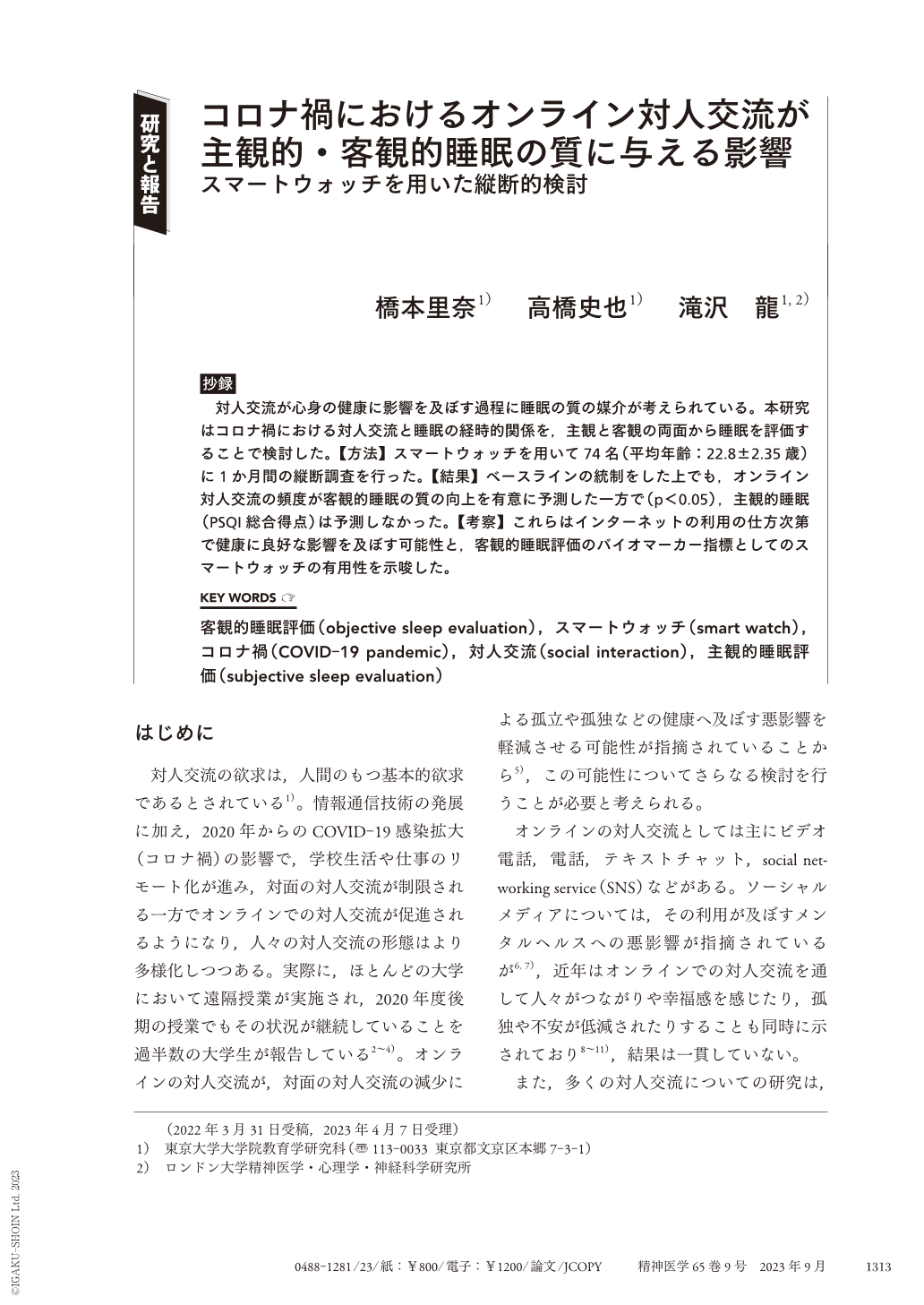Japanese
English
- 有料閲覧
- Abstract 文献概要
- 1ページ目 Look Inside
- 参考文献 Reference
抄録
対人交流が心身の健康に影響を及ぼす過程に睡眠の質の媒介が考えられている。本研究はコロナ禍における対人交流と睡眠の経時的関係を,主観と客観の両面から睡眠を評価することで検討した。【方法】スマートウォッチを用いて74名(平均年齢:22.8±2.35歳)に1か月間の縦断調査を行った。【結果】ベースラインの統制をした上でも,オンライン対人交流の頻度が客観的睡眠の質の向上を有意に予測した一方で(p<0.05),主観的睡眠(PSQI総合得点)は予測しなかった。【考察】これらはインターネットの利用の仕方次第で健康に良好な影響を及ぼす可能性と,客観的睡眠評価のバイオマーカー指標としてのスマートウォッチの有用性を示唆した。
Social interactions can affect physical and mental health, and sleep quality may act as a mediator to this relationship. This study examined the longitudinal relationship between social interactions and sleep quality during the Covid-19 pandemic, using both objective and subjective sleep evaluations.[Methods]One month longitudinal data was collected from 74 people(average age:22.8±2.35 years old)using commercially available smartwatches(fitbit senseTM)。[Results]After controlling for the baseline confounding variables, the frequency of social online interactions predicted improvement of objective sleep quality(p<0.05), but not subjective sleep quality(p>0.05). [Discussion]These results suggested that the use of Internet could have a positive effect on sleep quality and health, depending on how it's used. The results also indicated that smartwatches could be useful for objective sleep evaluations as a type of biomarker.

Copyright © 2023, Igaku-Shoin Ltd. All rights reserved.


